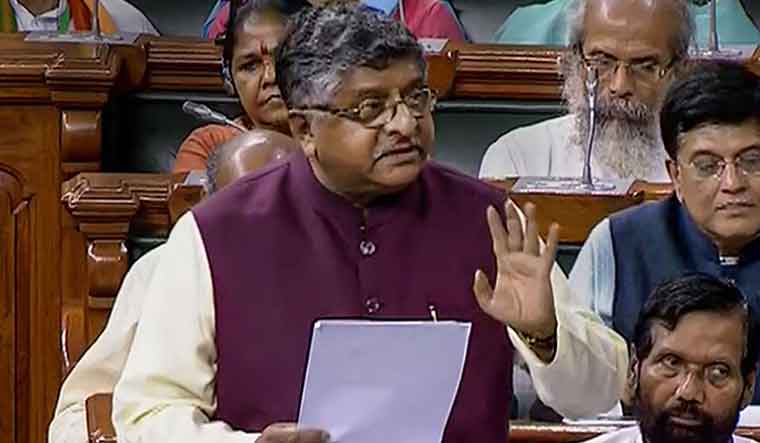In a move aimed at making India a hub of global arbitration, the Centre on Wednesday introduced a bill in the Lok Sabha to set up an independent and autonomous regime for institutionalised domestic and international arbitration.
The New Delhi International Arbitration Centre (NDIAC) Bill, 2019, seeks to replace an ordinance of the same title promulgated by the government in March this year. The ordinance was necessitated as a similar bill passed by the lower house on January 4 this year that lapsed with the dissolution of the 16th Lok Sabha.
The bill, moved in the Lok Sabha by Union Law Minister Ravi Shankar Prasad, provides for establishment of the NDIAC to conduct arbitration, mediation and conciliation proceedings. It also seeks to declare NDIAC as an institution of national importance.
The NDIAC, as per the bill, would be an independent and autonomous body meant to conduct institutional arbitration. The bill provides for acquisition and transfer of undertakings of the International Centre for Alternative Dispute Resolution (ICADR) to the NDIAC.
The proposed legislation is in keeping with the recommendations of a 10-member committee that was set up by the law ministry to suggest ways to revamp the arbitration mechanism in India. The panel, headed by Justice B.N. Srikrishna, had taken a dim view of the working of the ICADR, which has carried out only around 20 arbitrations in over two decades. The committee suggested that the ICADR, which was set up in 1995, should be declared an institute of national importance, taken over by a stature and revamped to become a globally competitive institution.
also read
- Lok Sabha polls: Why did Akhilesh Yadav file his nomination from Kannauj?
- Lok Sabha polls: Kerala Left Front MLA kicks up row saying ‘Rahul Gandhi's DNA should be examined’
- Lok Sabha election: Repolling underway at 11 polling stations in Manipur
- Surat returning officer rejects Cong LS candidate's nomination over proposers' sign discrepancies
The NDIAC would comprise seven members, and its chairperson has to be a retired judge of the Supreme Court or the high court or an eminent person with special knowledge and experience in the conduct or administration of arbitration. Two of its members have to be eminent persons having substantial knowledge and experience in institutional arbitration. The Centre would have three ex-officio members, including a nominee from the Ministry of Finance and a CEO who would be responsible for day-to-day administration. There would also be a representative from a recognised body of commerce and industry, appointed as a part-time member, on a rotational basis.
The key objectives of the NDIAC include promoting research, providing training and organising conferences and seminars in alternative dispute resolution matters, providing facilities and administrative assistance for the conduct of arbitration, mediation and conciliation proceedings, and maintaining a panel of accredited arbitrators, mediators and conciliators.
The important functions of the NDIAC include facilitating conduct of arbitration and conciliation in a professional, timely and cost-effective manner, and promoting studies in the field of alternative dispute resolution.



